In their thirteenth travelogue, our travellers make their way through Peru where they meet Pepé, a young local determined to make a difference in his community. Undeterred by Tommy the tuk tuk’s continuing health problems, Rich and Nick show they’ve got record-breaking determination.
Feeling fresh after almost a fortnight with Quiteño mechanics, we struck out for the Pacific. But by midday we realized that we still had problems … Tommy’s latest issue, perhaps sensing our rather urgent need to make progress through South America, was an inability to stop accelerating. While this can’t have been good for the engine, we were moving and that was the most important thing. We descended from the cool cordilleras through sticky, jungle-coated hillocks to a warm coastline, finding a beautiful little bay to camp in for the night. Waking up at sunrise with fishermen busy at work and gulls swarming overhead to take advantage of the fresh pickings, Tommy’s perpetual acceleration was no longer a problem – now he wouldn’t accelerate at all! With the help of a cheery local who’d set aside his 8am beer to lend us a hand, we developed a technique that allowed us to continue on to the next town. With two hands needed to manipulate the accelerator cable, Nick and I had to sit alongside each other and share the driving responsibilities. An entertaining 10km drive and quick mechanical fix later, and we were back on the road heading south.
Our daily mechanical issues became routine as Tommy’s health steadily deteriorated, his organs shutting down one at a time. Next to require attention, having just crossed the Peruvian border, were the clutch and clutch discs. Surely, now we’d seemingly replaced everything, there was nothing else to go wrong? We continued down the coast to the strange little town of Lobitos, populated by oil conglomerates, local fishermen and surfers. As we made our way through the deserted streets towards the beach, our engine cut out. It didn’t take long to find the problem – we’d picked up a fuel leak, our path into and around this ghost town clearly marked by a pronounced trail of diesel. Thankfully, we hunted down a mechanic in a nearby town who craftily glued over the small hole that had somehow appeared in our fuel pump, quenching the flow of spurting fuel.
While in Lobitos we also found Pepé, a young local determined to make a difference in his community. Pepé’s two passions are education and surfing, and the two are combined in his newly founded surf school. Pepé’s plan was to introduce young children to surfing through free community classes. Physical education occurs on an ad hoc basis in Lobitos’ school (when a teacher happens to be there to deliver it) and extracurricular activities are largely non-existent. Pepé’s surf classes fill this void – fostering teamwork, introducing nutritional issues and encouraging a healthy lifestyle – while engaging students in the town’s soon-to-be-booming surf tourism industry. More than this though, Pepé is taking advantage of the easy rapport he’s established with his students to discuss a different theme, usually a principle or a value, each week. Children who usually cause trouble in class, fighting among themselves, are now so engaged they’re actively suggesting issues they’d like to address. When asked why he does it, Pepé shrugs: “I’m following my passion. There’s nothing else I’d rather do.”
Having driven almost a full day from Lobitos, spirits were high and Tommy’s ailments a thing of the past. Then it happened, worse than anything we’d experienced to date. Tommy uncontrollably leapt into overdrive, engine screaming under the pressure. Unable to stop the revving, or our panic, we pulled off the road and unloaded everything from the back of the tuk tuk to give us access to the engine. Half-blinded by the plumes of smoke being emitted, we eventually found the motor’s kill switch. With ears ringing and smoke clearing we started to assess the damage. There was oil and diesel everywhere – it was all over the engine compartment, the road and us. We tried to stay positive. It started again and, after a quick spin, seemed like it could have been an isolated incident. Everything was loaded back into the tuk tuk and off we went. Two minutes later, the same problem. Wails and shrieks from the engine, pluming black smoke laced with oil and fuel – it seemed like Tommy had had enough, and he now sounded like he was about to explode.
Our only choice was to camp on the side of the busy Pan-American Highway, hitch a ride to the nearest town the next morning and find a truck (we had to settle for a fellow tuk tuk in the end) to tow us to Chiclayo – our best shot at finding a mechanic. While our engine was picked apart by a team of grizzled, old mechanics, we had some difficult decisions to make. With mounting mechanics costs and a new ‘one day driving, two days fixing’ schedule, this expedition was no longer feasible. We’d never make the finish line in Rio de Janeiro at this rate. Heck, we would never make it to Lima. It pained us to say it but if these mechanics were unable to fix Tommy, we were going to have to throw in the towel.
There were encouraging signs from the mechanics though … A faulty valve in the fuel pump was fixed; a temperamental fuel injector was replaced; the engine was dissected, cleaned and reassembled. It was late on a Saturday night, but we were good to go. Sighs of relief all round. We laughed and joked as we made our way through Chiclayo’s busy streets – we’d been so close to giving up, oh we of little faith. Then, all of a sudden, “RRRRRRRIIIIIIAAAAAAARRRRRR!!!” It had happened again after just 4km. Heads in hands, belongings scattered around us, tuk tuk carcass dejectedly slumped in the hard shoulder. It was over. Years of dreaming and planning, 15 months on the road, and we were helplessly looking on as everything came tumbling down around us.
We took a closer look at our mileage: 36,940km. We were only 70km away from breaking the world record for the longest journey in an auto-rickshaw. 70 measly kilometres. Hang on … We couldn’t complete our expedition, but we could at least break this damn record. The next morning we crafted a harness to allow one of us to pull the tuk tuk from the front, while the other pushed and steered from the back. We were breaking this record whether Tommy liked it or not. After three days of hauling the 800kg tuk tuk, we traipsed into the outskirts of Chepen. Completely drained and utterly bedraggled, the elation at having made it, having finally broken the record, could only be expressed in a whimpering cry. We felt numb, hollow even. The world record was never something we’d been particularly striving for, it was never our ultimate goal. Yet here it was, the climax of our expedition. It started to sink in. It was over.
Then a familiar sound reached our ears – “tuk-tuk-tuk-tuk-tuk-tuk-tuk-tuk” – the rattle of an auto-rickshaw engine approaching. It was actually very familiar. In fact, it sounded exactly the same as Tommy. We looked round to see Tommy’s twin approaching, a yellow diesel Piaggio Apé. Our minds, weary from exhaustion, slowly did the maths. If there are these types of tuk tuk here, there must be a mechanic who knows how to fix them. The yellow tuk tuk pulled over and out hopped the driver, guffawing at our spectacle. “Why are you pulling your mototaxi? Your mototaxi should be pulling you!” We weren’t in the mood for jokes. “Let me have a look”, he continued, “I’m a mechanic”. In less than a day the problem had been diagnosed and cured. Finally it all made sense. The hole in our fuel pump that we’d glued over in Lobitos to stop the leak – that hole was supposed to be there! It was the pump’s faulty valve that had caused the fuel leak (fixed in Chiclayo) and the pressure caused by the glue led to our other problems. It took a mechanic specializing in this type of tuk tuk to fix the problem and somehow we’d run into one of the only people in South America up to the task. We were back on the road …
Tuk Tuk Travels

Two teachers, Nick and Rich, travelled around the world in a tuk tuk to visit charitable projects and promote English language teaching. We followed their adventures here on onestopenglish.
- 1
- 2
- 3
- 4
- 5
- 6
- 7
- 8
- 9
- 10
- 11
- 12
- 13
- Currently reading
Tuk Tuk Travels: Entry 13: A record-breaking feat
- 15
- 16

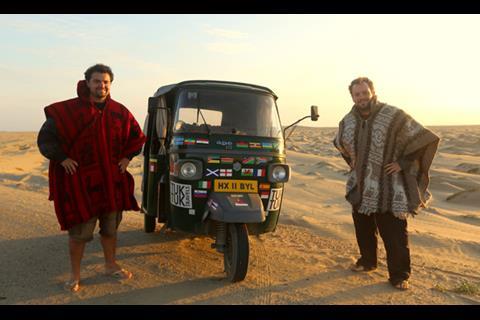
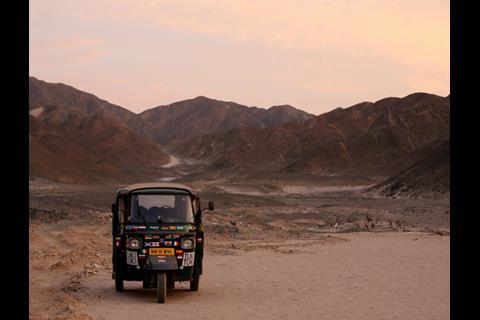
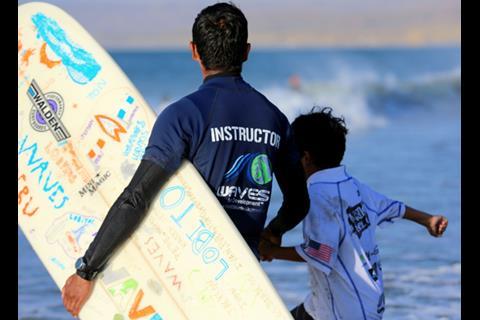
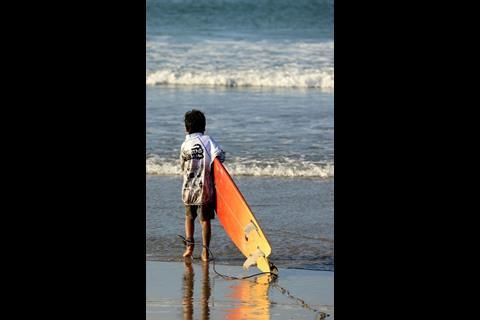
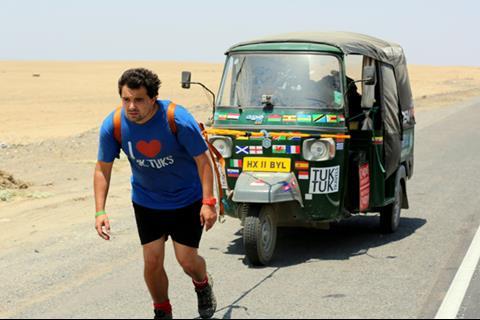
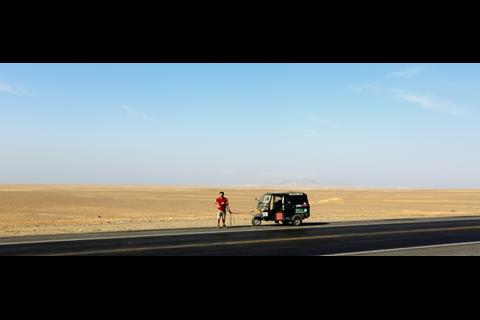
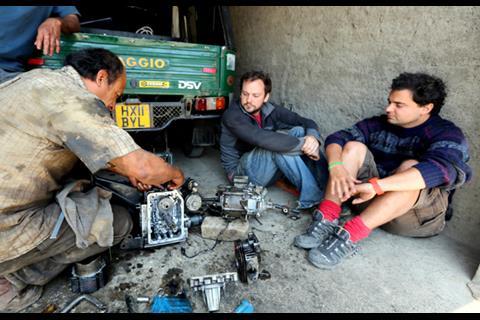
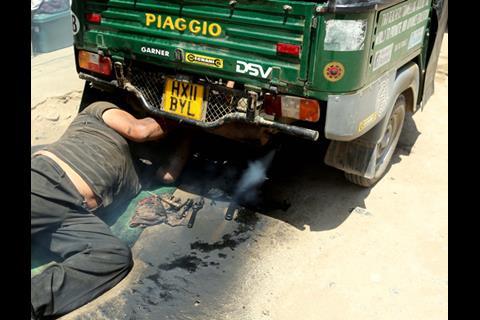



No comments yet